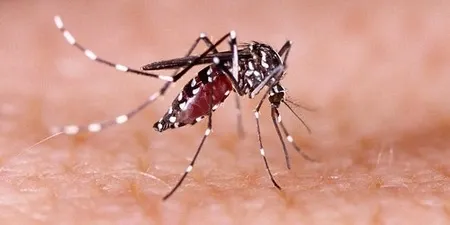How Are Vietnam's Major Cities Responding to the Dengue Fever Surge?

Synopsis
Key Takeaways
- Hanoi and Ho Chi Minh City are facing a surge in dengue fever cases.
- Residents are urged to take proactive measures against mosquito breeding.
- High fever, headache, and body aches are common symptoms.
- There is currently no specific treatment for dengue fever.
- The global incidence of dengue has dramatically increased over recent decades.
Hanoi, July 14 (NationPress) The two most populous cities in Vietnam, Ho Chi Minh City and Hanoi, are intensifying their efforts to address a significant increase in dengue fever cases observed in recent weeks, as reported by the Vietnam News Agency on Monday.
In Hanoi, the week saw 34 new confirmed infections, which is an uptick of 13 cases compared to the previous week, according to the city's Centre for Disease Control.
The centre has pinpointed several outbreak hotspots characterized by high mosquito activity and has cautioned that case numbers are expected to rise as the city approaches its annual peak season for this illness.
In parallel, health officials in Ho Chi Minh City have issued an urgent notice following six dengue-related fatalities recorded since the start of the year, as cited by Xinhua news agency and the Vietnam News Agency.
The southern city reported 838 new cases within the past week, bringing the cumulative total for the year to 14,370, marking an alarming increase of over 153 percent compared to the same timeframe last year, according to state-run media.
Authorities are urging residents to eliminate stagnant water, maintain cleanliness in water storage containers, and report any potential mosquito breeding sites through a dedicated health application.
The World Health Organization defines dengue as a viral infection transmitted from mosquitoes to humans, predominantly seen in tropical and subtropical regions.
While most dengue infections are asymptomatic, those who do display symptoms commonly experience high fever, headaches, body aches, nausea, and rashes. The majority recover within 1 to 2 weeks, but some may develop severe dengue, necessitating hospitalization.
In critical cases, dengue can lead to death.
To mitigate the risk of infection, it is advised to avoid mosquito bites, particularly during daytime hours.
Currently, there is no specific treatment for dengue; pain relief medications are the primary form of care.
The global incidence of dengue has surged significantly over the past several decades, with WHO reporting an increase from 505,430 cases in 2000 to 5.2 million in 2019. The majority of cases are mild or asymptomatic, leading to underreporting, with many misdiagnosed as other febrile illnesses.
The year 2023 has seen the highest number of dengue cases recorded, affecting over 80 nations across all WHO regions. Since the onset of this year, ongoing transmission, coupled with an unforeseen surge in cases, has resulted in a historic high of over 6.5 million cases and more than 7,300 dengue-related deaths.









